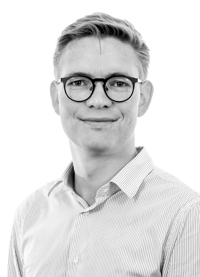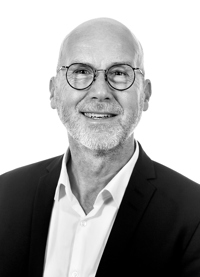Economic assessment of TELEGRAFT
Artificial blood vessels have been implanted for more than 50 years when patients themselves have not had usable veins, due to e.g. varicose veins. So far, little progress has been made in the field to prevent the most frequent and serious complications with artificial blood vessels, such as scar tissue in stitches, slow blood flow, which often causes the veins to stiffen, and problems with infection around the blood vessel, which can occur even years after the artificial blood vessels are inserted.
PROJECT PERIOD
Start: 2022
End: 2027
The problems are particularly significant when the artificial blood vessels are used for dialysis, where up to 70 percent of the blood vessels close or become infected within a year.
AIM
TELEGRAFT (Telemonitoring of home dialysis utilising a smart biomimetic arteriovenous graft) will develop an artificial, innovative blood vessel, designed to minimise the risk of closure and infection, thus significantly reducing complications.
Traditionally, complications are often only discovered when they have become critical, but the innovative nature of TELEGRAFT, together with a smart telemonitoring system, will increase the possibilities for early intervention. This new approach has the potential to reduce both patient suffering and healthcare costs.
The artificial vein can make dialysis safer and faster, and if the project is successful in developing the vein, dialysis patients will be able to use home dialysis in the long term and thus save time traveling back and forth to the hospital 2-3 times a week. The technology will also be easily and quickly used for, for instance, bypass operations.
When TELEGRAFT is fully developed and has undergone animal testing, it will be tested in an international study with participants from Denmark, Sweden, Lithuania, Germany and Spain.
PARTNERS
The project is administered and coordinated by the University of Southern Denmark.
In addition, the Region of Southern Denmark, the Region of Stockholm, Verigraft, Biomodics, Leibniz Institute of Photonic Technology, Vilnius University Hospital, BMD Software, Technischen Universität München, Servicio Vasco de Salud Osakidetza and University of Birmingham are partners on the project.
CIMT will be in charge of an economic assessment of the project.
EXTERNAL FUNDING
The project is financed by the British government, OUH and SDU. In addition, the project has been granted €5.362.620 from the EU's Horizon Europe funding programme.

Lasse Lybecker Scheel-Hincke
HTA Consultant, PhD Student
Odense University Hospital, Department of Clinical Development - Innovation, Research & HTA
(+45) 6541 7900 lasse.lybecker.scheel-hincke@rsyd.dk

Kristian Kidholm
Professor, Head of Research
Centre for Innovative Medical Technology (CIMT). Odense University Hospital, Dept. of Clinical Development - Innovation, Research & HTA
(+45) 6541 7960 kristian.kidholm@rsyd.dk
